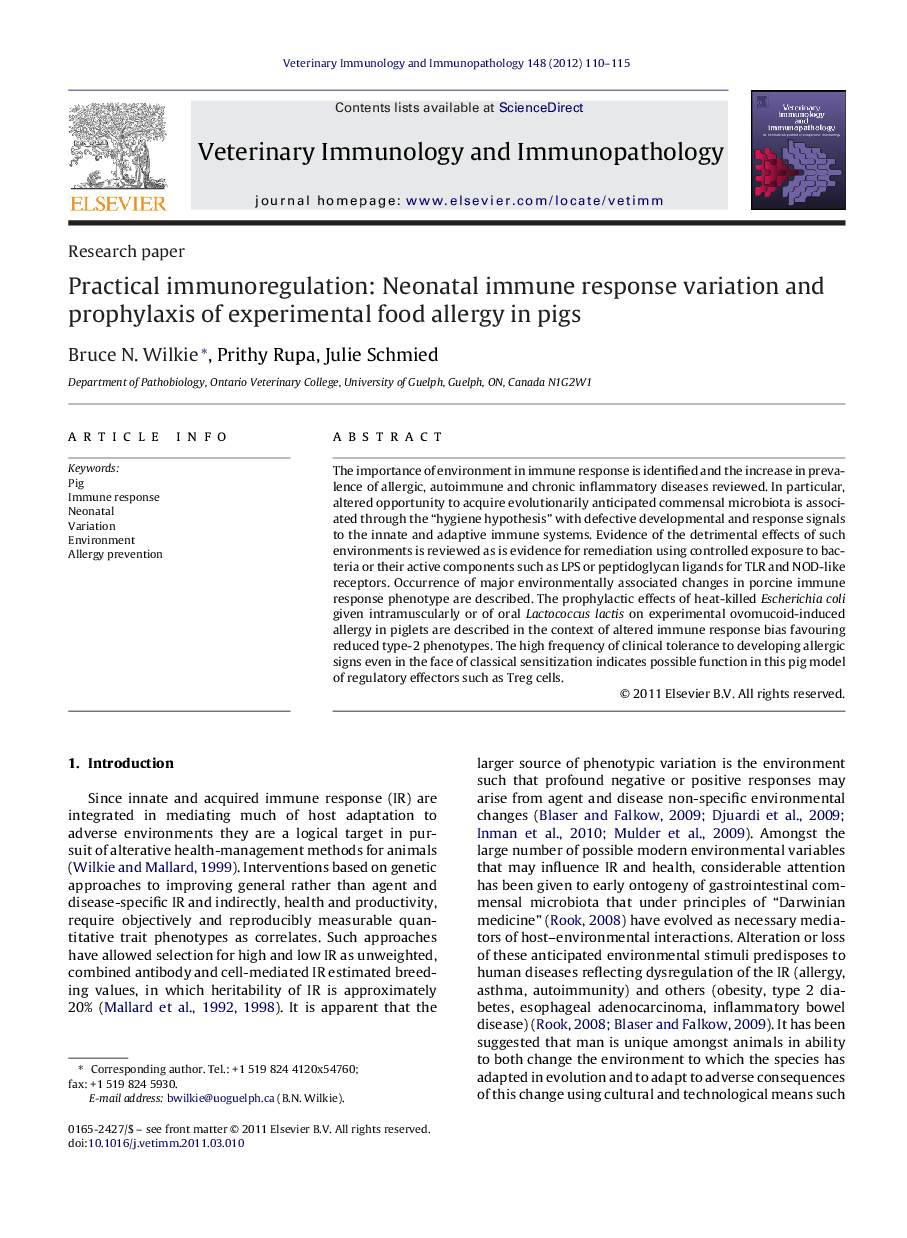| Article ID | Journal | Published Year | Pages | File Type |
|---|---|---|---|---|
| 5796942 | Veterinary Immunology and Immunopathology | 2012 | 6 Pages |
The importance of environment in immune response is identified and the increase in prevalence of allergic, autoimmune and chronic inflammatory diseases reviewed. In particular, altered opportunity to acquire evolutionarily anticipated commensal microbiota is associated through the “hygiene hypothesis” with defective developmental and response signals to the innate and adaptive immune systems. Evidence of the detrimental effects of such environments is reviewed as is evidence for remediation using controlled exposure to bacteria or their active components such as LPS or peptidoglycan ligands for TLR and NOD-like receptors. Occurrence of major environmentally associated changes in porcine immune response phenotype are described. The prophylactic effects of heat-killed Escherichia coli given intramuscularly or of oral Lactococcus lactis on experimental ovomucoid-induced allergy in piglets are described in the context of altered immune response bias favouring reduced type-2 phenotypes. The high frequency of clinical tolerance to developing allergic signs even in the face of classical sensitization indicates possible function in this pig model of regulatory effectors such as Treg cells.
